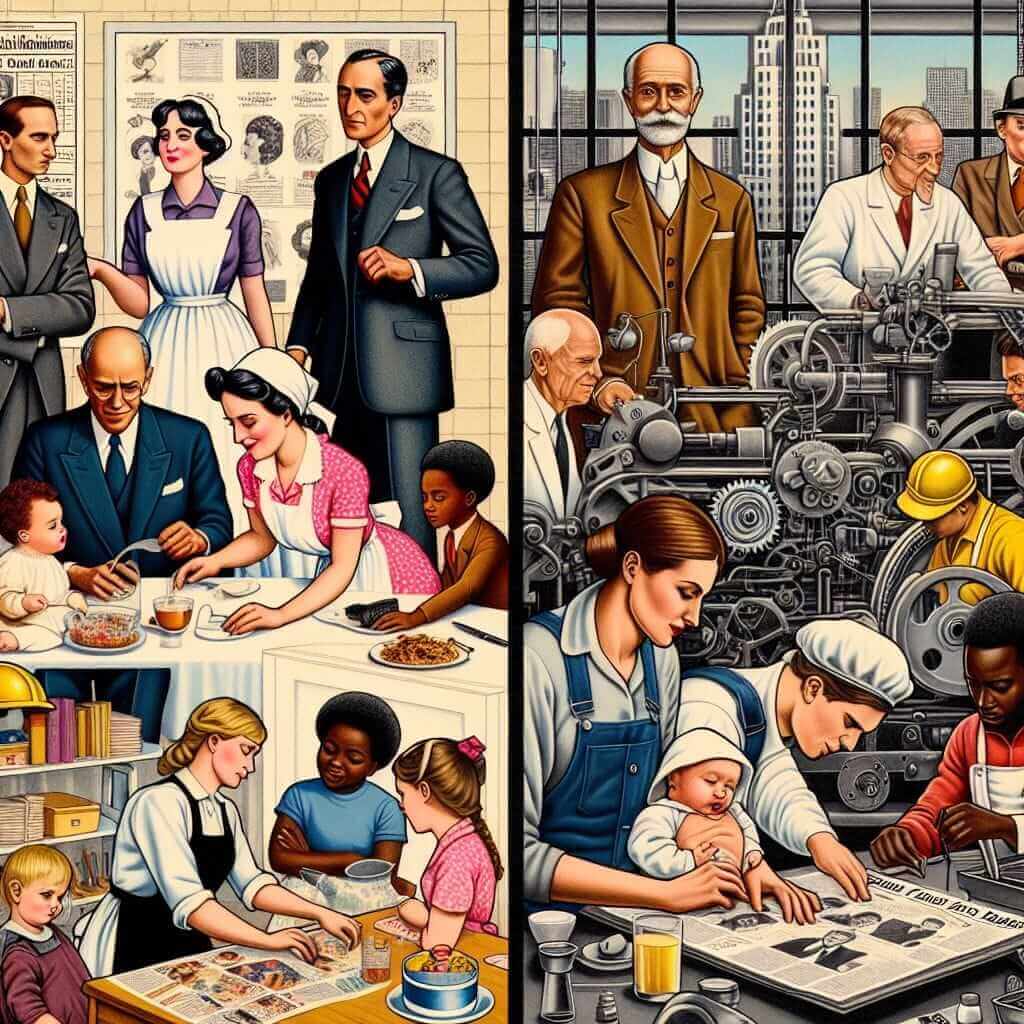Gender equality has been a significant societal issue, and the media plays a crucial role in shaping public perception. The topic “The influence of media representation on gender equality” is not only relevant but frequently appears in IELTS Writing Task 2. By analyzing past IELTS exam trends, we observe that themes related to gender roles, equality, and media influence are common, highlighting the importance of preparing for such topics.
To help learners effectively tackle such themes, we will explore an essay prompt related to media representation and gender equality, write a model essay, and provide detailed analyses and tips.
Model Essay Prompt
In many societies, media representations have a significant impact on gender equality. To what extent do you agree or disagree with this statement?
Analyzing the Prompt
This prompt requires you to take a stance—agree or disagree—and support your opinion with well-structured arguments. Key elements include:
- Media representations: Includes television, social media, advertisements, and more.
- Gender equality: The state of equal access to resources and opportunities regardless of gender.
Model Essay
Introduction:
Media is a pivotal tool in creating and perpetuating societal norms. In many societies, media representations significantly impact gender equality. I strongly agree with this statement as media can both positively and negatively influence societal perceptions of gender roles.
Body Paragraph 1:
Firstly, media often reinforces traditional gender roles, which can hinder progress toward gender equality. Advertisements, for example, frequently depict women in domestic settings, emphasizing their roles as homemakers. This perpetuates the stereotype that women are primarily responsible for household duties while men are portrayed as breadwinners. Consequently, these representations limit women’s opportunities in professional fields and sustain unequal distribution of domestic responsibilities.
Body Paragraph 2:
Moreover, media has the power to shape societal norms and expectations. When gender-biased content is continuously presented, it normalizes sexist attitudes and behaviors. For instance, television shows often depict women as less competent in leadership roles. This not only undermines women’s capabilities but also influences society’s perception, making it more challenging for women to attain leadership positions.

Body Paragraph 3:
On the contrary, media also has the potential to promote gender equality. Positive representation of women in diverse roles can challenge stereotypes and encourage societal change. Campaigns featuring successful women in various industries inspire young girls to pursue their dreams, thereby contributing to a more egalitarian society. Additionally, media can raise awareness about gender issues and advocate for policies that promote equality.
Conclusion:
In conclusion, while media can perpetuate traditional gender roles that hinder equality, it also possesses the ability to challenge these norms and foster a more equitable society. Therefore, its influence on gender equality is profound and multifaceted, underscoring the need for responsible media representation.
Word count: 278
Key Points to Remember When Writing About This Topic
- Vocabulary: Include terms like “gender stereotypes,” “societal norms,” “representation,” “equality,” and “stereotypes.”
- Grammar: Use complex sentences and various connecting phrases to show cohesion.
- Coherence and Cohesion: Ensure each paragraph flows logically, linking back to your thesis.
- Examples: Provide concrete examples to support your arguments. This could be from media, advertisements, television shows, etc.
Essential Vocabulary to Learn
-
Reinforce (v): [ˌriːɪnˈfɔːs]
- To strengthen or support.
-
Perpetuate (v): [pərˈpɛtʃuˌeɪt]
- Cause (something) to continue indefinitely.
-
Stereotype (n): [ˈstɛrɪəˌtaɪp]
- A widely held but fixed and oversimplified image or idea of a particular type of person or thing.
-
Egalitarian (adj): [ɪˌɡælɪˈteriən]
- Relating to or believing in the principle that all people are equal and deserve equal rights and opportunities.
-
Norms (n): [nɔːrmz]
- Standards or patterns of social behavior that are typical or expected of a group.
Conclusion
Topics relating to the influence of media representation on gender equality are pertinent and often appear in IELTS exams. Understanding the profound impact media can have on societal norms and gender roles is essential. To prepare effectively, it’s crucial to analyze prompts, construct coherent essays, and enrich your vocabulary.
For further practice, consider these related prompts:
- “Discuss the impact of advertising on gender roles in modern society.”
- “How has social media influenced public perceptions of gender equality?”